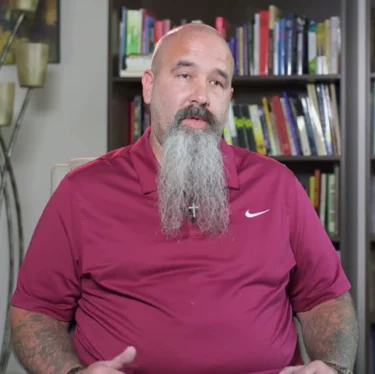Northshore Recovery High School is not your typical academic setting. Located north of Boston, Massachusetts on the coast, Northshore specializes in working with students struggling with substance use and co-occurring mental health challenges.
Unlike other public high schools, the staff at Northshore puts an emphasis on establishing relationships and meaningful connections with students. Successfully developing trust and rapport are seen as critical for the school staff to effectively initiate meaningful dialogue with their students around substance use, and when needed, generate greater receptivity for prevention guidance and recovery support.
With funding from the Centers for Disease Control and Prevention (CDC), the National Council for Mental Wellbeing is leading an initiative to assess the effects of the COVID-19 pandemic on substance use risks and drivers among youth ages 12-18 to equip youth-serving providers and organizations with the tools and resources necessary to support prevention messaging.
That includes helping providers engage youth in conversations to help prevent substance use, identify problems, and provide youth-centered resources for support.
Northshore serves as an important model for how best to engage youth in these conversations.
Build a Rapport by Creating a Partnership
As part of a larger recovery high school referral system in Massachusetts, Northshore students are referred to the school by their school districts, families, treatment providers, youth-serving state agencies or the juvenile justice system. Staff at the school are specially trained in motivational interviewing, Positive Behavioral Interventions and Supports (PBIS) and other motivational and de-escalation techniques that help their students remain and excel in school.
Since the focus is on the students’ recovery at Northshore, instead of being suspended for alcohol and other drug use, students are offered counseling and treatment. This is in contrast to mainstream school systems that often pull away from students in times of crisis, by suspending them, or in some cases, expulsion. But instead, by leaning in to connect with youth, the staff at Northshore seize on opportunities to have honest conversations about wellbeing and health-related decision making.
“The only way to save this generation is to have these conversations. These tough conversations. That’s what we do, and it’s not a traditional approach but that’s because a traditional conversation doesn’t work,” said Michelle Lipinski, principal and founder of Northshore.
Knowing what information youth connect with, and what each individual values, can open doors to conversations that make a difference and increase the willingness of youth to listen and be motivated to make healthy decisions. Spending the time to build rapport is the key to knowing what messages will and will not resonate. Without this foundation, prevention messaging for youth can very easily fall flat. However, when there is a pre-established connection, as exists between students and staff at Northshore Recovery High School, you see conversations that foster open communication, active engagement and the ability to deliver prevention messages – or any message – to a more receptive young person.
“Rapport is more than just being friendly. In motivational interviewing we talk in terms of ‘engagement’ and ‘connection.’ When a young person believes that you really want to understand their perspective, it can really open doors,” said Pam Pietruszewski, consultant at the National Council for Mental Wellbeing.
Old school prevention techniques relied on a hierarchical approach in which the adult would lecture the youth about the dangers of drugs and alcohol. In more modern times, we know that prevention messaging needs to be a two-way conversation between adult and youth, where both voices are heard and listened to.
Encouraging young people to participate in the exchange reduces the power dynamic, especially if the provider demonstrates sincere, reflective listening, without judgement and without attempting to control the conversation. The partnership approach creates the space to allow a young person to feel supported by a youth-serving provider who seeks to build trust.
Pietruszewski also offers these suggestions:
- Approach the conversation as a partnership in which information gathering and sharing creates a two-way dialogue.
- Invite the young person to give their perspective by asking: “What have you heard about opioids?” (As the adult, what a great way to learn from the view of a young person!)
- Ask permission, such as “Would it be okay if I shared some of what we are learning?” Or “What would you most want to know?”
Youth-serving providers are well-positioned to wade into the waters of substance use prevention with youth. But without the knowledge and skills to build rapport and trust with youth, the opportunity will be missed. It is critical that we provide adults and our youth-serving providers with the appropriate resources, such as the National Council’s Getting Candid: Framing the Conversation Around Youth Substance Use Prevention, to begin having these conversations.
“It is time we think differently and move beyond the status quo, which has not helped youths with substance use and co-occurring mental health challenges,” Lipinski said.
The opioid epidemic took the lives of over 93,000 Americans in 2020 alone. We owe it to the young people we serve to create spaces in which they feel comfortable enough to share and listen. We owe it to them to build the connections and have the tough conversations around drugs and alcohol, that could ultimately save their lives.
FINANCIAL DISCLAIMER: This project is supported by the Centers for Disease Control and Prevention (CDC) of the U.S. Department of Health and Human Services (HHS) as part of a financial assistance award totaling $2,000,000 with 100% funded by CDC/HHS. The content is that of the author(s) and do not necessarily represent the official views of, nor an endorsement, by CDC/HHS or the U.S. Government.
Guest Author
Director of Communications
National Council for Mental Wellbeing



